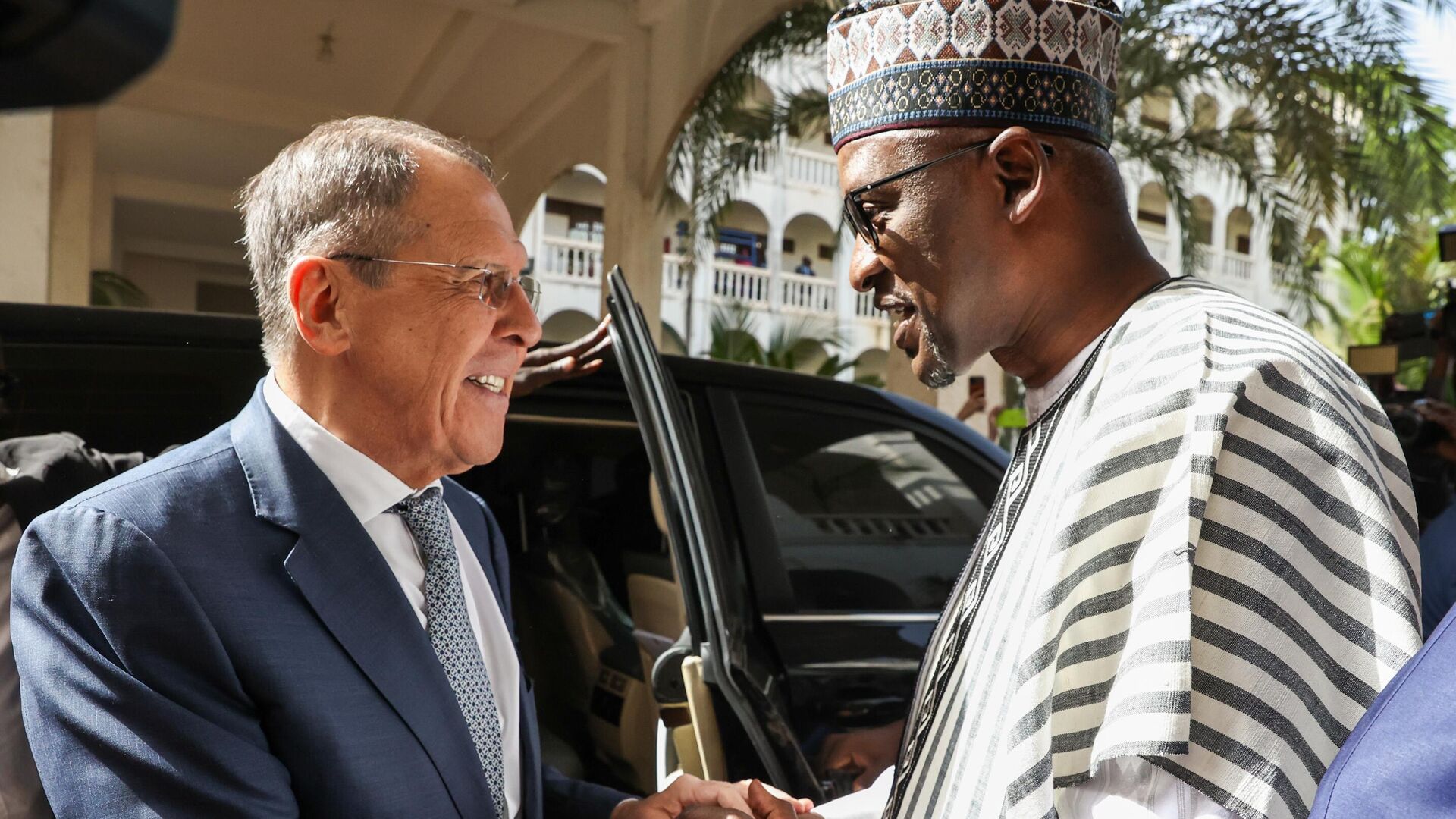https://sputnikglobe.com/20230210/russia-and-africa-fated-to-expand-partnership-ex-ambassador-says-1107309991.html
Russia, Africa 'Fated' to Expand Partnership, Ex-Ambassador to Mali, Burkina Faso Says
Russia, Africa 'Fated' to Expand Partnership, Ex-Ambassador to Mali, Burkina Faso Says
Sputnik International
On Thursday, Russian Foreign Minister Sergey Lavrov concluded his African tour covering Mali, Mauritania and Sudan. Sputnik asked an ex-diplomat to sum up the visit and elaborate on the perspectives of Russian-African relations.
2023-02-10T15:16+0000
2023-02-10T15:16+0000
2023-02-10T15:18+0000
africa
africa insight
diplomacy
sergey lavrov
mali
sudan
mauritania
france
west
trade
https://cdn1.img.sputnikglobe.com/img/07e7/02/0a/1107319363_0:0:2865:1612_1920x0_80_0_0_3bf4552da7f85d4c47514197868d0ed2.jpg
There is a logical expansion of the scope and deepening of the content of Russia's comprehensive cooperation with Africa, explains Evgeny Korendyasov, Soviet and Russian ambassador in Burkina Faso and later in Mali, in an interview with Sputnik.Talking about the Russian foreign minister's extensive African trips and what is called "an African pivot in Russian foreign policy," the ex-ambassador argues that in reality, such a pivot took place as early as the 1960s, when Moscow strongly supported the independence of African countries. Now, he added, Russia – relying on its merits in supporting the national liberation movement in African countries – is warmly welcomed.Lavrov's visit to Mali took place against a backdrop of cooling relations between Bamako and Paris and, among other things, focused on the supply of Russian equipment and the fight against terrorism.The country, which was under French rule in colonial times, is among those most affected by the Sahel Islamist insurgency that has been troubling the region since 2011. In 2014, France started Operation Barkhane with the goal of countering terrorism, but the mission was terminated in 2022 after little success was achieved and the jihadist threat persisted. The French troops withdrew from Mali amid growing contradictions with the military government of Colonel Assimi Goita, which came to power after the 2020 coup and later accused France of providing weapons to terrorists.Answering the question on the role of the Russian-Malian partnership in solving the security problems in the region, Korendyasov draws attention to the long history of cooperation between the two nations, since the 1960s – when the USSR supplied Mali with food and kerosene for lighting and diesel engines in governmental facilities during the French economic blockade. Now, the ex-diplomat says, the African country largely relies on Moscow in terms of defense.After holding talks in Mali, the Russian foreign minister announced Moscow's plans for additional military equipment to be delivered to Mali, as well as steps to train the Malian military at Russian universities.During the meetings with Lavrov, both Malian and Mauritanian officials declared their countries' interest in the supply of hydrocarbons and agricultural products from Russia. Elaborating on the prospects of the development of Russian-African trade, Korendyasov underlines that there are both objective and subjective factors for the development of commerce. He notes that Africa does not support sanctions against Russia and does not comply with them; when problems arise in trade through European routes, the issues are solved by business circles, the ex-ambassador underlined, citing the example of Russian fertilizers blocked in European ports.At the end of November 2022, Russian chemicals manufacturer Uralchem Group announced plans to provide African countries with more than 260,000 tons of free fertilizer that were blocked in European ports due to anti-Russian sanctions introduced after the beginning of the special military operation in Ukraine. With support from the UN, Uralchem Group managed to de-block the cargo and the first batches of the fertilizers reached Africa, namely Malawi, in early February.During his recent African trips, Minister Lavrov repeatedly touched upon the matter of Russian fertilizer supply, noting that the European Union and the United States provided no support to solve the problem.Talking about exports from Africa to Russia, Korendyasov notes that the latter is increasingly buying products of tropical agriculture and the expansion of trade relations contributes to the modernization of logistics systems.He also underlines the importance of the upcoming 2023 Russia–Africa Summit, a follow-up to the first event of the kind which took part in 2019 in Sochi.During Lavrov's African journey, all the three host nations confirmed their participation in the summit.The final destination of the Russian minister's recent trip was Sudan. During the joint press conference with his Sudanese counterpart Ali Al-Sadiq, the Russian minister said agreement on the establishment of a logistics support center for the Russian Navy in Sudan was "in the process of ratification."Korendyasov underlines the mutual interest Moscow and Khartoum have in the initiative. Talking about Lavrov's Sudanese trip, the ex-ambassador comments on the West's sensitivity to the expansion of Moscow's influence in Africa – with opinions delivered in the western media, implying that the Russian minister's visit to the African country took EU and US diplomats "by surprise."According to the ex-diplomat, as a huge market and an important source of strategic mineral resources, the African continent is currently the scene of intensified international competition, with Americans and Europeans stepping up their efforts to maintain and expand cooperation – competing with China as well as Turkiye, which in recent years has rapidly expanded its positions on the continent.He adds that the African profits that France had in colonial times were the most important source of the renaissance of French capitalism and the French economy as a whole. Now, he underlines, the need for African resources for the further development of both the European and American economies is becoming more and more obvious.France has repeatedly accused Russia of "interference" in Africa, namely in former French colonies, with President Macron claiming that Moscow pursues a "predatory project" there. During his previous African tour (encompassing South Africa, Eswatini, Angola and Eritrea), Lavrov said at a session of the General Assembly of the United Nations that he had been told by top EU diplomats "that Russia should learn that Africa is the area of special interest of Europe."After holding talks with Lavrov, Malian Foreign Minister Abdoulaye Diop declared that his country prefers cooperation with Russia over that with France, noting that the partnership with Paris "did not meet the aspirations" of the citizens of Mali.During his trip, the Russian foreign minister noted that the West exerted pressure on Africa in order to harm relations between Russia and countries of the continent. Lavrov stressed that such efforts would not have an effect.
https://sputnikglobe.com/20230114/frances-10-year-war-in-sahel-colonialism-legacy-regime-changes--control-over-uranium-1106311201.html
https://sputnikglobe.com/20230207/what-did-russia-mali-agree-on-during-fm-lavrovs-stay-in-bamako-1107045281.html
https://sputnikglobe.com/20230210/west-puts-pressure-on-african-countries-that-want-to-take-part-in-russia-africa-summit-diplomat-1107289515.html
https://sputnikglobe.com/20230125/colonial-hubris-behind-french-accusations-of-russian-burkina-faso-interference-analyst-says-1106696161.html
africa
mali
sudan
mauritania
france
west
sahel region
Sputnik International
feedback@sputniknews.com
+74956456601
MIA „Rossiya Segodnya“
2023
News
en_EN
Sputnik International
feedback@sputniknews.com
+74956456601
MIA „Rossiya Segodnya“
Sputnik International
feedback@sputniknews.com
+74956456601
MIA „Rossiya Segodnya“
lavrov africa, russia africa, lavrov sudan, lavrov mali, lavrov mauritania, russia sudan, russia mali, russia mauritania, france africa, korendyasov,
lavrov africa, russia africa, lavrov sudan, lavrov mali, lavrov mauritania, russia sudan, russia mali, russia mauritania, france africa, korendyasov,
Russia, Africa 'Fated' to Expand Partnership, Ex-Ambassador to Mali, Burkina Faso Says
15:16 GMT 10.02.2023 (Updated: 15:18 GMT 10.02.2023) Russian Foreign Minister Sergey Lavrov concluded his second African tour of 2023 on Thursday, this time covering Mali, Mauritania and Sudan. Sputnik asked an ex-diplomat and scholar to sum up the visit and elaborate on the perspectives for Russian-African relations.
There is a logical expansion of the scope and deepening of the content of Russia's comprehensive cooperation with Africa, explains Evgeny Korendyasov, Soviet and Russian ambassador in Burkina Faso and later in Mali, in an interview with Sputnik.
Talking about the Russian foreign minister's extensive African trips and what is called "an African pivot in Russian foreign policy," the ex-ambassador argues that in reality, such a pivot took place as early as the 1960s, when Moscow strongly supported the independence of African countries. Now, he added, Russia – relying on its merits in supporting the national liberation movement in African countries – is warmly welcomed.
"For Africans – they are pragmatists, of course – Russia is a kind of alternative to the West, which does not stop its intentions to maintain its former hegemonic positions in the economy and politics of African states," Korendyasov underlines.
Lavrov's visit to Mali took place against a backdrop of cooling relations between Bamako and Paris and, among other things, focused on the supply of Russian equipment and the fight against terrorism.
The country, which was under French rule in colonial times, is among those most affected by the Sahel Islamist insurgency that has been troubling the region since 2011. In 2014, France started Operation Barkhane with the goal of countering terrorism, but the mission was
terminated in 2022 after little success was achieved and the jihadist threat persisted. The French troops withdrew from Mali amid growing contradictions with the military government of Colonel Assimi Goita, which came to power after the 2020 coup and later
accused France of providing weapons to terrorists.
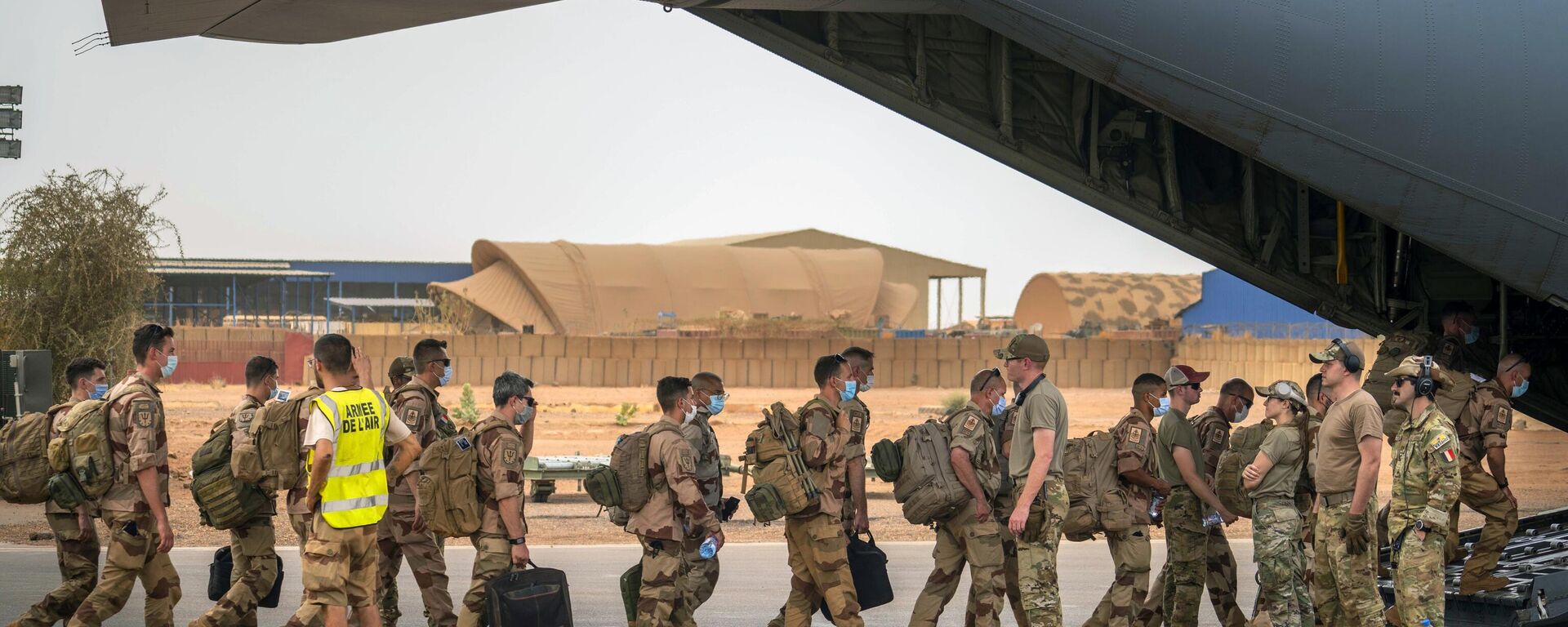
14 January 2023, 09:34 GMT
Answering the question on the role of the Russian-Malian partnership in solving the security problems in the region, Korendyasov draws attention to the long history of cooperation between the two nations, since the 1960s – when the USSR supplied Mali with food and kerosene for lighting and diesel engines in governmental facilities during the French economic blockade. Now, the ex-diplomat says, the African country largely relies on Moscow in terms of defense.
As for security issues, the Malian Army is 80% armed with Russian military equipment, 80% of the officer staff of the Malian Army have received military training in Russian military schools, so here [the partnership] is still following a historically predetermined path, and, of course, there is a transformation, modernization of the ties, deepening, expansion, in accordance with new technology and the new goals and objectives set by both the Malian and the Russian sides.
Evgeny Korendyasov
Soviet and Russian ambassador in Burkina Faso and later in Mali
After holding talks in Mali, the Russian foreign minister announced Moscow's plans for additional military equipment to be delivered to Mali, as well as steps to train the Malian military at Russian universities.
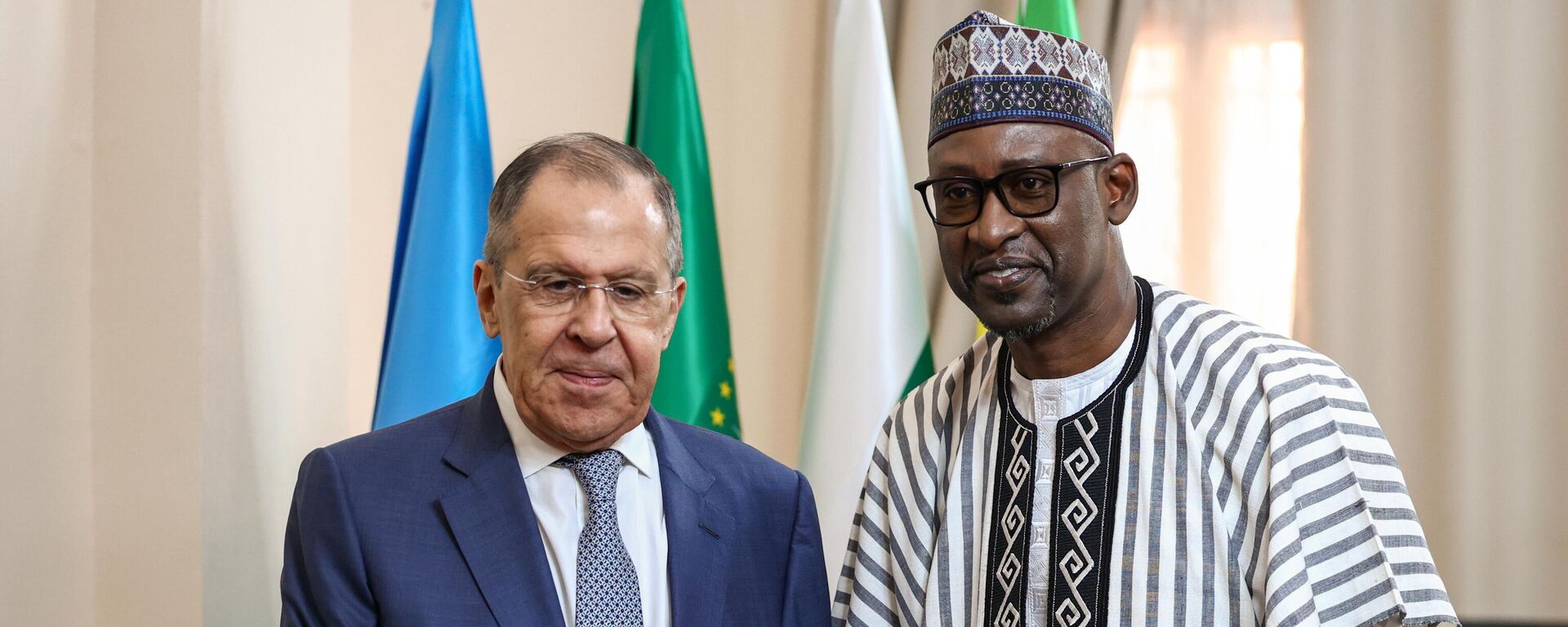
7 February 2023, 14:00 GMT
During the meetings with Lavrov, both Malian and Mauritanian officials declared their countries' interest in the supply of hydrocarbons and agricultural products from Russia.
Elaborating on the prospects of the development of Russian-African trade, Korendyasov underlines that there are both objective and subjective factors for the development of commerce. He notes that Africa does not support sanctions against Russia and does not comply with them; when problems arise in trade through European routes, the issues are solved by business circles, the ex-ambassador underlined, citing the example of Russian fertilizers blocked in European ports.
At the end of November 2022, Russian chemicals manufacturer Uralchem Group announced plans to provide African countries with more than 260,000 tons of free fertilizer that were blocked in European ports due to anti-Russian sanctions introduced after the beginning of the special military operation in Ukraine. With support from the UN, Uralchem Group managed to de-block the cargo and the first batches of the fertilizers reached Africa, namely Malawi, in early February.
During his recent African trips, Minister Lavrov repeatedly
touched upon the matter of Russian fertilizer supply, noting that the European Union and the United States provided no support to solve the problem.
Talking about exports from Africa to Russia, Korendyasov notes that the latter is increasingly buying products of tropical agriculture and the expansion of trade relations contributes to the modernization of logistics systems.
"Speaking poetically, Russia and Africa are fated to expand further cooperation. Fated for objective reasons: the complementarity of economies and the structure of foreign economic relations, and also fated for historical reasons," the ex-diplomat says.
He also underlines the importance of the upcoming 2023 Russia–Africa Summit, a follow-up to the first event of the kind which took part in 2019 in Sochi.
"Russian-African relations have intensified. This is evidenced by the fact that a Russia–Africa Summit will be held in St. Petersburg this summer, and more than 40 heads of state of African countries are expected to arrive in St. Petersburg this summer. And at the summit, urgent issues of mutual cooperation will be resolved, especially in the field of energy, the use of mineral resources and the exchange of food and agricultural products and raw materials," Korendyasov notes.
During Lavrov's African journey, all the three host nations confirmed their participation in the summit.
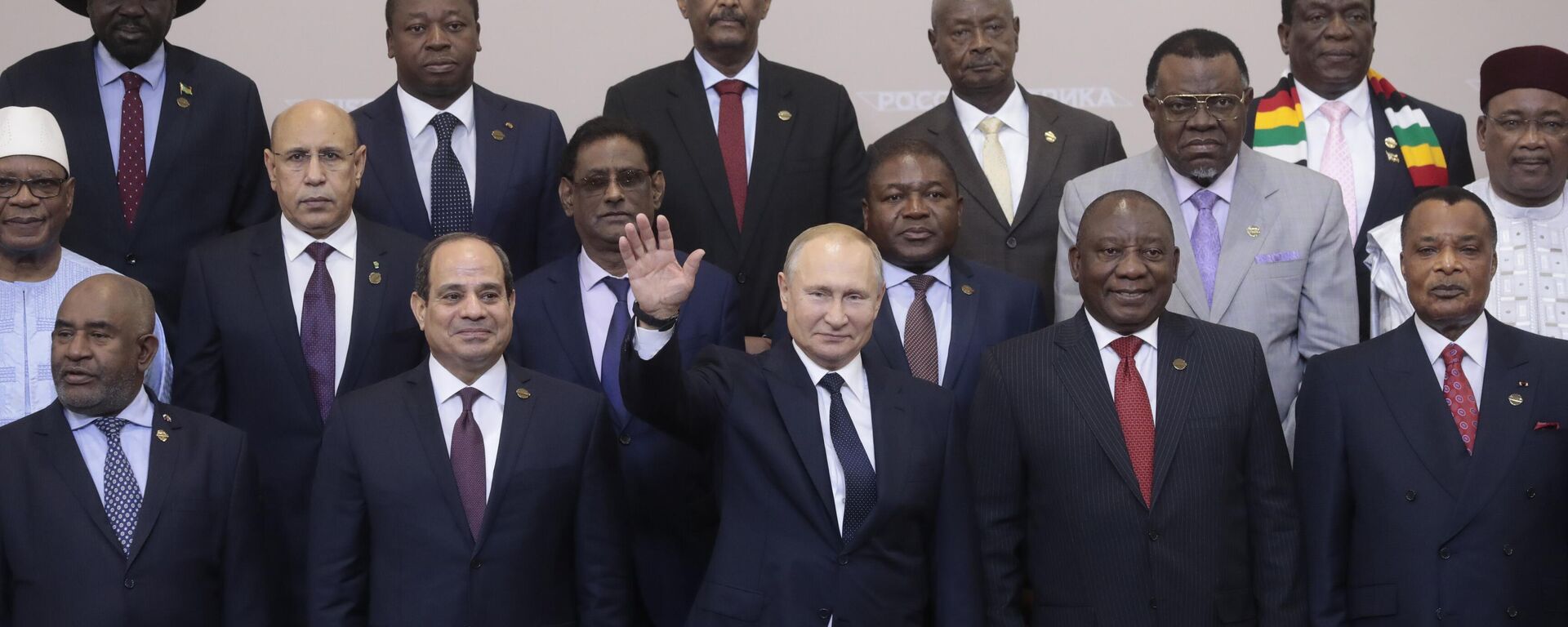
10 February 2023, 07:44 GMT
The final destination of the Russian minister's recent trip was Sudan. During the joint press conference with his Sudanese counterpart Ali Al-Sadiq, the Russian minister said agreement on the establishment of a logistics support center for the Russian Navy in Sudan was "in the process of ratification."
Korendyasov underlines the mutual interest Moscow and Khartoum have in the initiative. Talking about Lavrov's Sudanese trip, the ex-ambassador comments on the West's sensitivity to the expansion of Moscow's influence in Africa – with opinions delivered in the western media, implying that the Russian minister's visit to the African country took EU and US diplomats "by surprise."
According to the ex-diplomat, as a huge market and an important source of strategic mineral resources, the African continent is currently the scene of intensified international
competition, with Americans and Europeans stepping up their efforts to maintain and expand cooperation – competing with China as well as Turkiye, which in recent years has rapidly expanded its positions on the continent.
"As for the French, they still cannot get it out of their heads that there are no French colonies in Africa," Korendyasov explains. "They had a total area of colonies in Africa, 9,000,000 square kilometers, the territory of France is 500,000 square kilometers. Imagine how many times more, almost 20 times. And, of course, it is difficult for them to refuse this piece. And they fight with clenched teeth, with their competitors, with us in particular, especially with China, with the Americans and so on."
He adds that the African profits that France had in colonial times were the most important source of the renaissance of French capitalism and the French economy as a whole. Now, he underlines, the need for African resources for the further development of both the European and American economies is becoming more and more obvious.
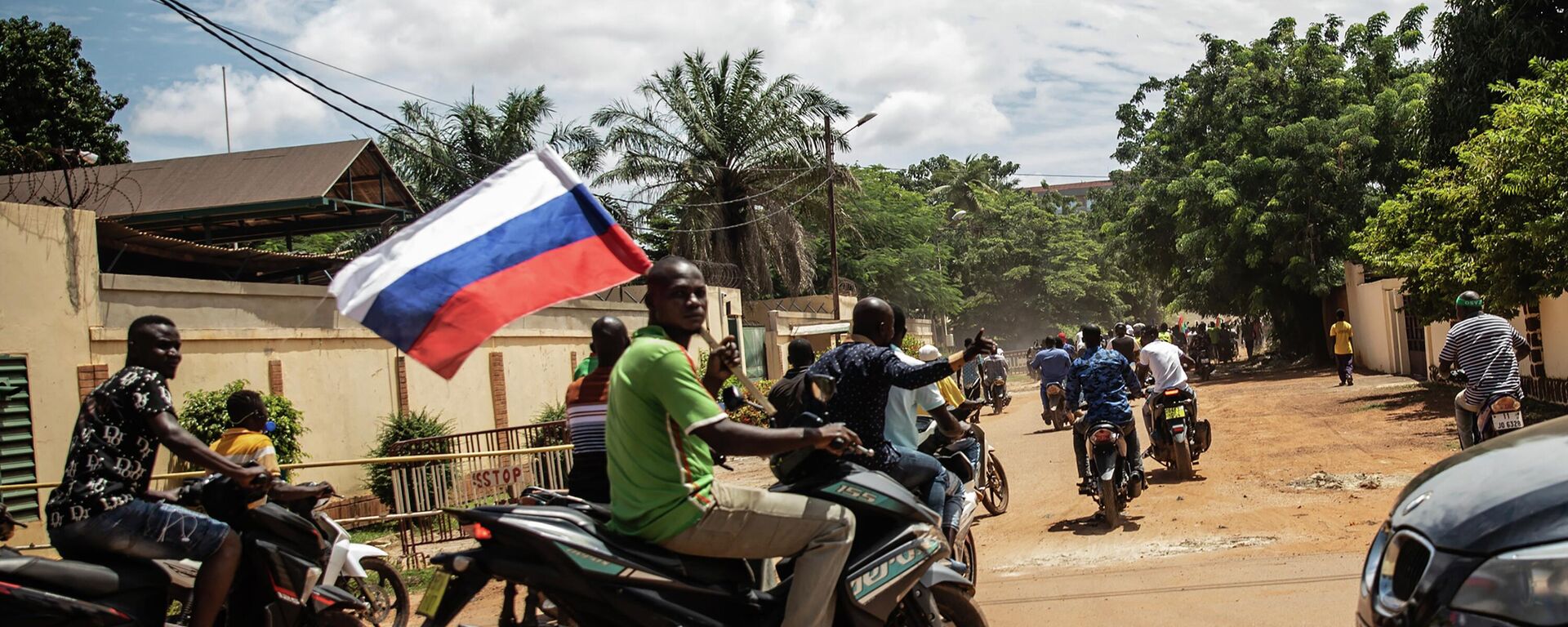
25 January 2023, 15:18 GMT
France has repeatedly accused Russia of "interference" in Africa, namely in former French colonies, with President Macron
claiming that Moscow pursues a "predatory project" there. During his previous African tour (encompassing South Africa, Eswatini, Angola and Eritrea), Lavrov said at a session of the General Assembly of the United Nations that he had been
told by top EU diplomats "that Russia should learn that Africa is the area of special interest of Europe."
After holding talks with Lavrov, Malian Foreign Minister Abdoulaye Diop declared that his country prefers cooperation with Russia over that with France, noting that the partnership with Paris "did not meet the aspirations" of the citizens of Mali.
During his trip, the Russian foreign minister noted that the West exerted pressure on Africa in order to harm relations between Russia and countries of the continent. Lavrov stressed that such efforts
would not have an effect.